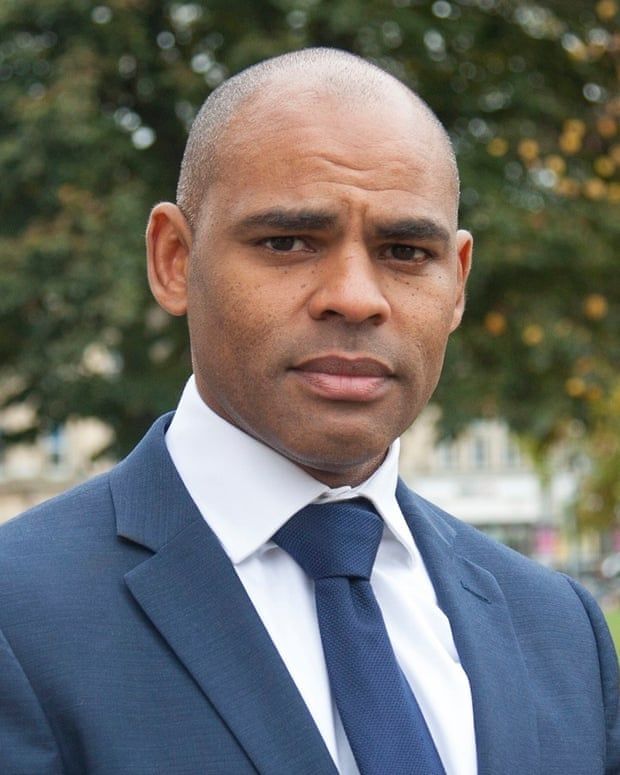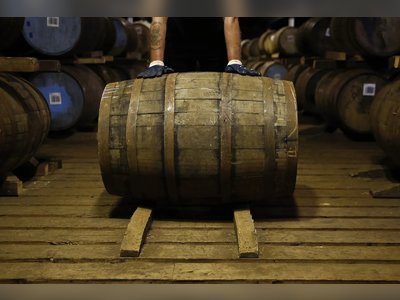
‘Cruel’ move to deport charity worker from UK overruled
An immigration tribunal has overturned a “cruel and morally wrong” decision by the Home Office to deport a well-respected black charity volunteer who grew up in the UK.
The tribunal ruled last week that Anthonell Peccoo, who arrived in London when he was six years old and spent most of his life in Bristol, would have his right to a family and private life infringed if he was deported to Jamaica.
The judges said deportation would mean “exiling” Peccoo, 27, from the only country he has ever known, leaving him “an outsider” in Jamaica. “He has no family, friends or acquaintances in Jamaica. He has no recollection of the country at all. He has never been there since leaving at aged two. He was schooled in the UK and completed his education in the UK from age six to 18,” states the ruling. “He has known no other country.”
The Home Office seeks to deport all foreign nationals sentenced to more than 12 months in jail regardless of how long they have lived in this country or if they have family or children. Officials targeted Peccoo for deportation after he was imprisoned for grievous bodily harm (GBH) and drugs offences in 2015. The department’s lawyers argued that he continued to remain a threat even after he had completed his sentence.
But the tribunal said Peccoo, who runs a charitable barbershop for people on a low income in Bristol, did not pose a danger to society. The ruling acknowledges he had “shown genuine and tangible remorse” and that he had gone on to show “himself to be of great worth and value by his positive actions towards others”, noting he has “given back to society in significant terms and in many ways”. The judges remarked that deporting him would be “cruel and morally wrong” as it would undo his rehabilitation.
One of the young people injured during the fight that led to Peccoo’s jail sentence even wrote him a character reference: “if anyone should want… Peccoo removed from this country it would be me,” but “I stand with Anthonell, I am fighting for him, with hundreds of people in Bristol…”.
Peccoo, whose family struggled to formalise his immigration status when he was growing up, said he was glad the tribunal had recognised his deep roots in the UK and the contribution he was now making to society. “I am really excited [by the decision]. I can now get on with my life without having this overwhelming feeling that it could be taken away from me at any point,” he said. “I’ve already done so much with my limitations – I feel like I could contribute even more to the community in Bristol.”
He plans to expand his “second combing” barbershop, which raises money for the LoveBristol church charity, so he can train disadvantaged people struggling with addiction or homelessness. “If I could give someone a second chance like how I got my second chance the world would be a little bit better,” he said.
Official figures do not reveal how many of the 10,017 foreign-born offenders deported since 2019 under the controversial policy grew up in the UK, but one deportation flight last year included at least ten Jamaicans who arrived as children. Many people facing deportation have children and partners in the UK. Detention Action, which works with people facing removal, said half of the Jamaicans it has helped over the last five years arrived when they were under 18, with 32% under 13 on arrival.
The judgment comes after a progress report into the Windrush scandal found last month the Home Office had failed to become more compassionate and couldn’t determine if people with an entitlement to British citizenship had been wrongly deported as foreign criminals.
Peccoo’s plight generated widespread sympathy across Bristol. More than 90,000 people signed a petition supporting Peccoo and 345 people, including the Bristol mayor, Marvin Rees, wrote character references.
 Bristol mayor Marvin Rees.
Bristol mayor Marvin Rees.
Rees welcomed the outcome of the tribunal but said Peccoo should never have been put through such an ordeal. “For every single victory against the system, there are hundreds of people who are being failed. We cannot afford to not learn from this,” he said. Peccoo added: “I’ve been astonished that so many people care – I can’t go down the street without people asking me about my case.”
The Joint Council for the Welfare of Immigrants said no person who calls the UK home should face exile to a country they barely know. “This government’s deportation rules amount to a cruel double punishment, with people – disproportionately black people – torn from their families after they’ve already served their time,” said Zoe Gardner, the group’s policy and advocacy manager.
Peccoo had a difficult childhood. His mother took him from Jamaica to Antigua when he was two, then four years later to London, where his father was living. He was then put in the care of a family friend, who brought him up in Bristol. He has had no contact with his mother since she left him in the UK. He grew up thinking he was British and only discovered his immigration status was unclear when he applied for a job.
Unable to find legal work, he began dealing drugs. But he got into a fight while selling cannabis in a park, which left three youngpeople injured. While the tribunal heard his crimes were serious, the judges noted they were his first offences and he has not been in trouble since his release. They also said the initial violence did not come from Peccoo, adding it could be seen as “excessive self-defence”.
Many of the people targeted by the Home Office for deportation are found by the courts to be victims of modern slavery or human trafficking or have fears of persecution if they are returned. Government research shows nearly three-quarters of people subject to enforced returns raise concerns that prevent their deportation. Deportations of foreign-born offenders have been in long-term decline since 2012, with 1,977 people deported in 2021.
A Home Office spokesperson said all claims were fully considered and decided upon before removal, and people would not be removed where there were outstanding claims or concerns.
“This government puts the rights of the British public before those of dangerous criminals, and we’re clear that foreign criminals should be deported wherever it is legal and practical to do so,” they said.










